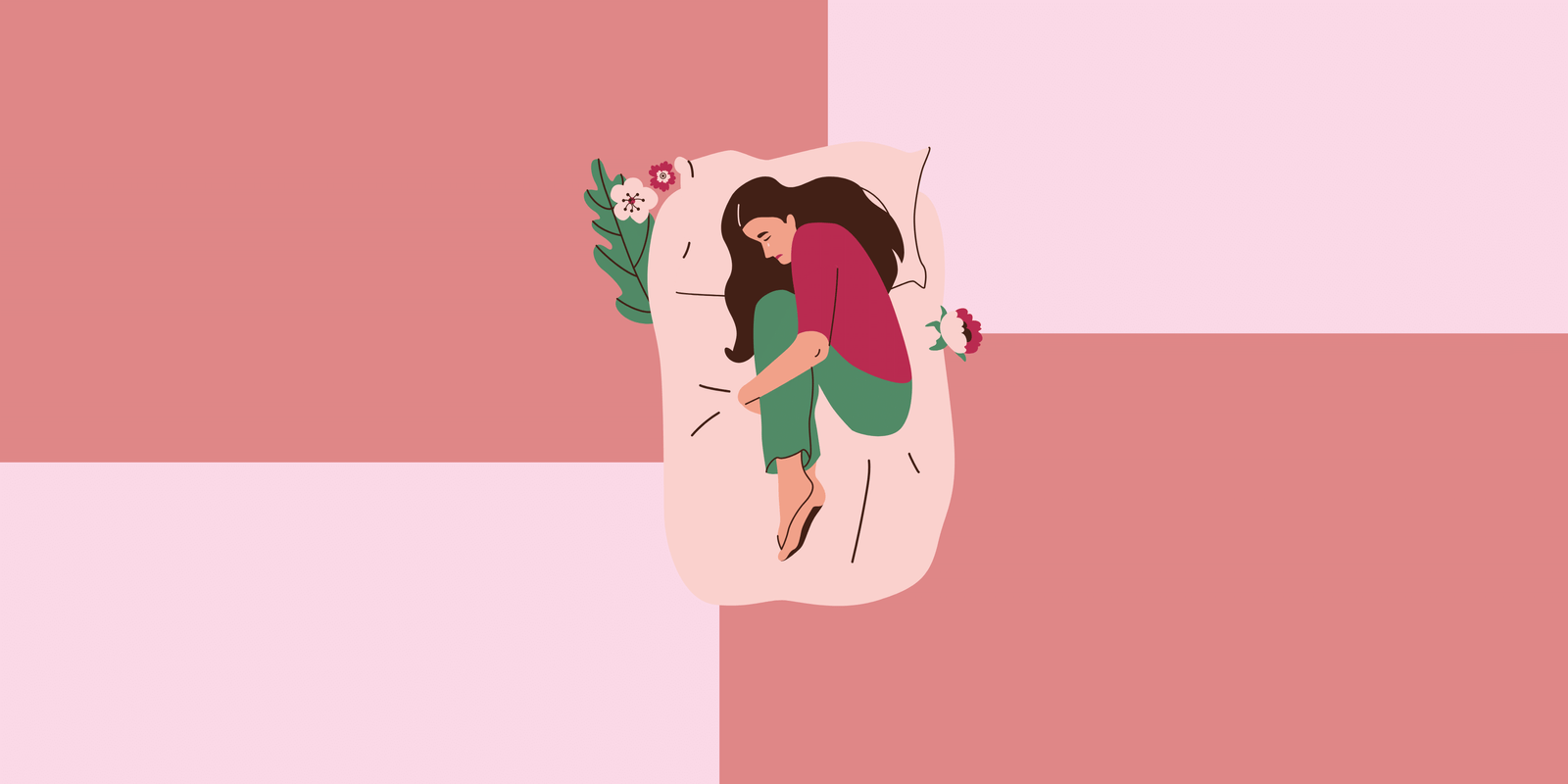PMS Relief: Coping with Premenstrual Symptoms Naturally
For many women, the days leading up to menstruation can be accompanied by a range of uncomfortable symptoms collectively known as premenstrual syndrome (PMS). These symptoms, which can include bloating, mood swings, fatigue, and irritability, affect women of all ages and backgrounds. While PMS is a common occurrence, its impact on daily life can vary widely from person to person.
In the quest for relief, many women seek out natural remedies to alleviate the discomfort associated with PMS. From dietary changes to stress-management techniques, there is a wealth of strategies that can help mitigate symptoms and promote a sense of well-being during this challenging time of the month.
In this guide, we'll explore various natural approaches to managing PMS, offering practical tips and insights to help you navigate this aspect of your menstrual cycle with greater ease and comfort. Whether you're experiencing mild or more severe symptoms, incorporating these strategies into your routine can empower you to take control of your health and find relief from the challenges of PMS.
Understanding PMS: What's the Story Behind Those Symptoms?
Premenstrual syndrome (PMS) is a common condition that affects millions of women worldwide each month. It encompasses a range of physical and emotional symptoms that typically occur in the days leading up to menstruation. But what exactly triggers these symptoms, and why do they vary from person to person?
1. Hormonal Fluctuations:One of the primary culprits behind PMS symptoms is hormonal fluctuations. Throughout the menstrual cycle, the levels of estrogen and progesterone in the body rise and fall. In the days before menstruation, these hormone levels fluctuate more dramatically, which can contribute to symptoms such as bloating, breast tenderness, and mood swings.
2. Lifestyle Factors:Several lifestyle factors can exacerbate PMS symptoms or make them more pronounced. Poor diet, lack of exercise, and inadequate sleep can all contribute to hormonal imbalances and increase susceptibility to PMS. Additionally, certain dietary choices, such as consuming excessive caffeine or alcohol, may worsen symptoms like irritability and fatigue.
3. Stress: Stress is another significant factor that can exacerbate PMS symptoms. When the body is under stress, it releases hormones like cortisol, which can disrupt the delicate balance of other hormones involved in the menstrual cycle. High levels of stress can amplify symptoms such as mood swings, anxiety, and fatigue, making them more difficult to manage.
4. Nutritional Deficiencies:Inadequate intake of essential nutrients, such as calcium, magnesium, and vitamin B6, can contribute to the severity of PMS symptoms. These nutrients play crucial roles in hormone regulation, neurotransmitter function, and overall well-being. Incorporating a balanced diet rich in fruits, vegetables, whole grains, and lean proteins can help alleviate PMS symptoms by providing the body with the necessary nutrients it needs to function optimally.
5. Lack of Exercise:Regular physical activity has been shown to have numerous benefits for women experiencing PMS. Exercise helps regulate hormone levels, reduce stress, and improve mood, all of which can help alleviate symptoms associated with PMS. Engaging in activities such as walking, jogging, yoga, or swimming can provide both physical and emotional relief during the premenstrual period.
6. Sleep Quality: Poor sleep quality or insufficient sleep can exacerbate PMS symptoms such as fatigue, irritability, and mood swings. Prioritizing good sleep hygiene, such as maintaining a consistent sleep schedule, creating a relaxing bedtime routine, and ensuring a comfortable sleep environment, can help improve overall well-being and reduce the impact of PMS on daily life.
Natural Remedies for PMS Relief
1. Dietary Changes: What you eat can significantly impact how you feel during the premenstrual period. Incorporating nutrient-rich foods into your diet can help support hormonal balance and alleviate PMS symptoms. Focus on consuming plenty of fruits, vegetables, whole grains, and lean proteins, which provide essential vitamins, minerals, and antioxidants. Additionally, reducing your intake of processed foods, sugary snacks, and caffeine can help minimize symptoms such as bloating, irritability, and fatigue.
2. Herbal Supplements:Nature offers a variety of botanical remedies that have been used for centuries to alleviate PMS symptoms. Herbs like chasteberry, evening primrose oil, and ginger contain compounds that may help regulate hormone levels, reduce inflammation, and relieve discomfort associated with PMS. Incorporating these herbs into your daily routine, either as supplements or herbal teas, can provide natural relief from symptoms such as mood swings, bloating, and breast tenderness.
3. Exercise:Physical activity is a powerful tool for managing PMS symptoms and promoting overall well-being. Engaging in regular exercise helps release endorphins, which are natural mood lifters, and reduces levels of stress hormones like cortisol. Aim for a combination of aerobic exercises, such as walking, jogging, or cycling, and strength training activities to support muscle strength and endurance. Even low-impact exercises like yoga or tai chi can help improve flexibility, reduce muscle tension, and alleviate symptoms like cramps and fatigue.
4. Stress Management: Chronic stress can exacerbate PMS symptoms and make them more challenging to manage. Prioritizing stress management techniques can help mitigate the effects of stress on the body and promote a greater sense of calm and well-being. Practices such as meditation, deep breathing exercises, progressive muscle relaxation, and mindfulness can help reduce stress levels and improve coping mechanisms. Additionally, carving out time for self-care activities that bring joy and relaxation, such as spending time in nature, reading, or practicing hobbies, can provide a much-needed respite from the demands of daily life.
5. Adequate Sleep: Quality sleep is essential for overall health and well-being, especially during the menstrual cycle. Adequate sleep helps regulate hormone levels, support immune function, and promote mental clarity and emotional balance. Aim for 7-9 hours of uninterrupted sleep per night, and establish a bedtime routine that encourages relaxation and prepares your body for rest. Creating a comfortable sleep environment, free from distractions like electronic devices and excessive noise, can also improve sleep quality and help alleviate PMS symptoms such as irritability and fatigue.
Self-Care Strategies for PMS Relief
1. Quality Sleep: Prioritizing quality sleep is essential for managing PMS symptoms and promoting overall well-being. Establishing a consistent bedtime routine can signal to your body that it's time to wind down and prepare for rest. This may include activities such as dimming the lights, practicing relaxation techniques like deep breathing or gentle stretching, and avoiding stimulating activities like watching TV or using electronic devices before bed. Creating a restful sleep environment free from distractions such as noise and excessive light can also help improve sleep quality and support hormonal balance. Aim for 7-9 hours of uninterrupted sleep each night to allow your body to recharge and recover.
2. Mindfulness Practices: Incorporating mindfulness practices into your daily routine can help cultivate awareness and reduce stress, both of which are beneficial for managing PMS symptoms. Activities such as meditation, yoga, or journaling provide opportunities to quiet the mind, tune into your body's signals, and foster a sense of inner calm. Mindfulness techniques can help you develop coping strategies for dealing with challenging emotions and navigate the ups and downs of the menstrual cycle with greater ease. By dedicating time each day to these practices, you can cultivate resilience and enhance your overall well-being.
3. Limiting Caffeine and Alcohol:While caffeine and alcohol may provide temporary relief or relaxation, excessive consumption can exacerbate PMS symptoms such as irritability, mood swings, and breast tenderness. To minimize these effects, it's important to limit caffeine and alcohol intake during the premenstrual period. Consider reducing your consumption of caffeinated beverages like coffee, tea, and soda, especially in the afternoon and evening, to avoid disrupting sleep patterns and exacerbating symptoms. Similarly, moderating alcohol consumption can help stabilize mood and reduce inflammation, promoting a more balanced hormonal environment. Opt for alternative beverages such as herbal teas, infused water, or decaffeinated options to support your body's natural rhythms and alleviate PMS discomfort.
4. Nutritional Support:Supporting your body with nutrient-rich foods can provide essential vitamins, minerals, and antioxidants to help regulate hormone levels and reduce PMS symptoms. Incorporate foods rich in calcium, magnesium, vitamin B6, and omega-3 fatty acids into your diet to support overall health and well-being. These nutrients play key roles in hormone regulation, neurotransmitter function, and inflammation reduction, which can help alleviate symptoms like bloating, mood swings, and fatigue. Focus on consuming a balanced diet that includes plenty of fruits, vegetables, whole grains, and lean proteins to nourish your body and support optimal hormonal balance throughout the menstrual cycle.
Understanding the intricacies of premenstrual syndrome (PMS) empowers us to navigate its challenges with grace and resilience. From hormonal fluctuations to lifestyle factors and stress management, we've explored the diverse array of influences that contribute to PMS symptoms. By recognizing these factors and implementing holistic strategies, we can embrace a more balanced approach to managing our well-being throughout the menstrual cycle.
As we journey through the ups and downs of PMS, let's remember the power of natural remedies and self-care practices in providing relief and fostering a sense of comfort and vitality. Whether it's through nourishing dietary changes, embracing herbal supplements, staying active with exercise, or prioritizing quality sleep and mindfulness, there are myriad ways to support our bodies and minds during this time.
Let's embark on this journey together and explore the world of natural remedies for PMS relief. Try incorporating the following self-care strategies into your routine:
-
Dietary Changes:Experiment with nutrient-rich foods like fruits, vegetables, whole grains, and lean proteins to support hormonal balance and alleviate PMS symptoms.
-
Herbal Supplements: Explore the benefits of herbs such as chasteberry, evening primrose oil, and ginger for natural relief from mood swings, bloating, and breast tenderness.
-
Exercise:Engage in regular physical activity to boost mood, reduce stress, and alleviate symptoms like cramps and fatigue.
-
Stress Management:Prioritize stress reduction techniques such as meditation, deep breathing, or journaling to foster inner calm and resilience.
-
Quality Sleep:Establish a bedtime routine and create a restful sleep environment to promote hormonal balance and overall well-being.
Mindfulness Practices: Cultivate awareness and reduce stress through activities like meditation, yoga, or journaling





